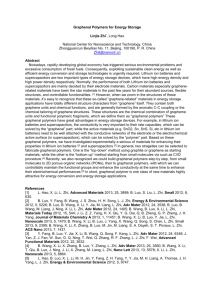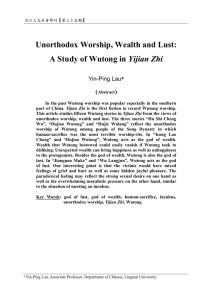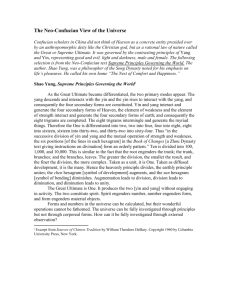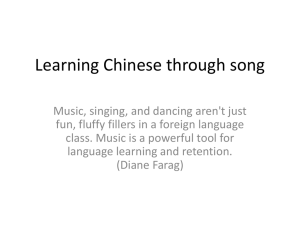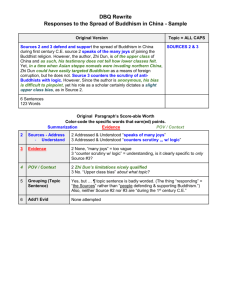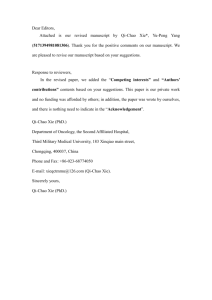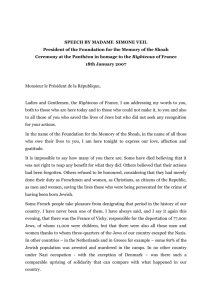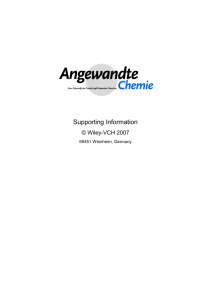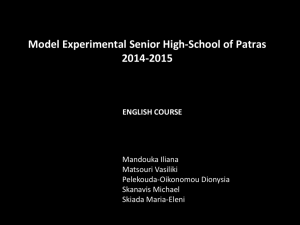treatment principles - Redwing Book Company
advertisement
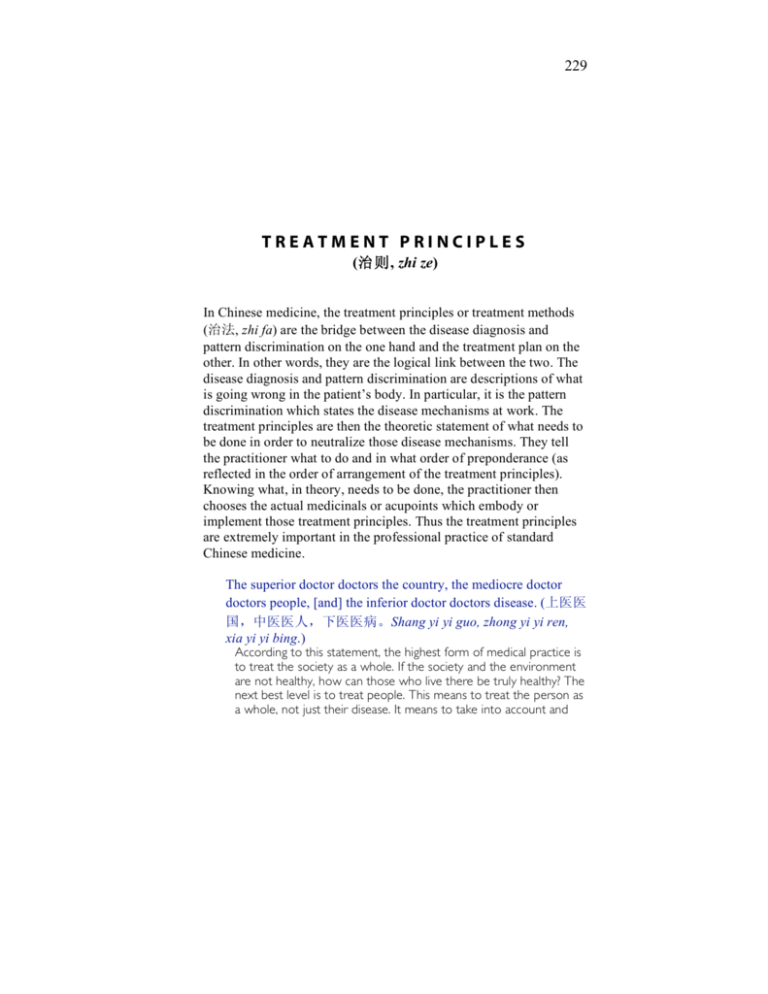
229
TREATMENT PRINCIPLES
(
, zhi ze)
In Chinese medicine, the treatment principles or treatment methods
(
, zhi fa) are the bridge between the disease diagnosis and
pattern discrimination on the one hand and the treatment plan on the
other. In other words, they are the logical link between the two. The
disease diagnosis and pattern discrimination are descriptions of what
is going wrong in the patient’s body. In particular, it is the pattern
discrimination which states the disease mechanisms at work. The
treatment principles are then the theoretic statement of what needs to
be done in order to neutralize those disease mechanisms. They tell
the practitioner what to do and in what order of preponderance (as
reflected in the order of arrangement of the treatment principles).
Knowing what, in theory, needs to be done, the practitioner then
chooses the actual medicinals or acupoints which embody or
implement those treatment principles. Thus the treatment principles
are extremely important in the professional practice of standard
Chinese medicine.
The superior doctor doctors the country, the mediocre doctor
doctors people, [and] the inferior doctor doctors disease. (
Shang yi yi guo, zhong yi yi ren,
xia yi yi bing.)
According to this statement, the highest form of medical practice is
to treat the society as a whole. If the society and the environment
are not healthy, how can those who live there be truly healthy? The
next best level is to treat people. This means to treat the person as
a whole, not just their disease. It means to take into account and
230
Statements of Fact in Traditional Chinese Medicine
attend to all their needs as much as is practicable. The lowest form
of medicine is to treat disease as if it were separate from the
person manifesting the disease. Such disease-based treatment often
leads to heroic and short-sighted treatments which may cure the
disease but kill the patient, or cure the symptoms but not get to the
root of the disease.
Treat [or treating] on the basis of disease discrimination. (
Bian bing lun zhi.)
This means predicating treatment on the patient’s disease diagnosis.
For instance, for migraine headache, do this. For multiple sclerosis,
do that. In other words, everyone with the same disease gets the
same treatment. Unlike some other systems of medicine, while
standard professional Chinese medicine does use the patient’s
disease diagnosis to help erect the treatment plan, it is only a
secondary factor.
Treat [or treating] on the basis of a pattern discrimination. (
Bian zheng lun zhi.)
This means predicating treatment on the patient’s personally
presenting Chinese medical patterns. In standard professional
Chinese medicine, treatment is primarily predicated on the patient’s
presenting patterns and only secondarily on their disease diagnosis.
In fact, treating based on the pattern discrimination is the hallmark
of traditional Chinese medicine. It is what makes Chinese medicine
the safe and effective, holistic medicine it is. Treating based on each
patient’s presenting patterns allows the practitioner to individually
tailor a treatment plan to that patient’s specific needs.
Same disease, different treatments; different diseases, same
treatments. ( Tong bing yi zhi, yi bing
tong zhi.)
This statement is a corollary of the preceding statement. It means
that patients with the same disease diagnosis may receive entirely
different treatments if their presenting patterns are different.
Conversely, patients with different disease diagnoses may receive
essentially the same treatments if their presenting patterns are the
same.
To treat disease, seek its root. ( Zhi bing qiu ben.)
Treatment Principles
231
This means that practitioners of Chinese medicine should not just
palliate symptoms. Instead, they should seek the root causes and
mechanisms of each patient’s disease and then address those in
order to eradicate the disease in its entirety.
Treat [when] there is no disease. ( Zhi wei bing.)
The superior doctor treats [when] there is no disease. (
Shang gong zhi wei bing.)
The superior worker treats [when there is] no disease. The mediocre worker treats [when there is] already disease. (
Shang gong zhi wei bing, zhong gong zhi
yi bing zhe.)
The superior doctor doctors [when there is] no disease, the
mediocre doctor doctors [when one is] on the point of [being]
diseased, [and] the inferior doctor doctors [when there is] already
disease. (. Shang yi yi
wei bing, zhong yi yi yu bing, xia yi yi yi bing.)
According to these statements, the superior doctor should prevent
disease from arising, not just seek to eliminate it after it has taken
hold. It is treatment based on pattern discrimination that allows the
Chinese medical practitioner to do this. Everyone exhibits some
pattern of disharmony even though they may not be diagnosed as
suffering from a particular disease. By addressing these constitutional or habitual patterns when they are still relatively mild, one can
prevent them from becoming so severe as to eventually cause
disease.
Early treatment prevents changes. (Zao zhi fang
bian.)
According to this statement, treatment early in the course of a
disease prevents the disease from changing and getting worse.
Act in accordance with seasonal, geographic, and personal factors. (
Yin shi yin di yin ren zhi yi.)
This statement is also an expression of the holism of Chinese
medicine. The practitioner should take into account the season of
the year, the environment in which the patient lives, and the
232
Statements of Fact in Traditional Chinese Medicine
patient’s personal diet, lifestyle, family, and work situations when
both discriminating the patient’s patterns and erecting a
comprehensive treatment plan.
[In] acute [disorders], treat the tip [or branch]. ( Ji ze
zhi biao.)
Literally, the word “acute” here means “urgent” or “very rapid.” This
statement means that it is ok to simply palliate severe symptoms in
acute conditions. After these tip or branch symp-toms are taken
care of, then the practitioner has the space to address the deeper
root causes and mechanisms. For instance, all forms of bleeding are
considered emergency or acute conditions in Chinese medicine.
Therefore, based on this treatment principle, it is ok to stop
bleeding by any means necessary or at hand. However, once the
bleeding has been stopped or brought under control, then one
should attempt to discern the underlying cause of the bleeding and
eliminate or remedy that.
[In] moderate [i.e. chronic conditions], treat the root. (
Huan ze zhi ben.)
Literally, the word “moderate” here means “relaxed” or “slow.” This
statement means that, in conditions where time is not of primary
importance, one should take the time to find the root causes and
mechanisms of the patient’s disease and then remedy those.
[If] the upper is diseased, treat the lower. ( Shang bing
zhi xia.)
[If] the lower is diseased, treat the upper. ( Xia bing
zhi shang.)
These two statements mostly apply to acupuncture and its related
modalities. According to these statements, if there is a disease in
the upper body, we may select acupoints on the lower body to
treat it and vice versa.
[If] yang is diseased, treat yin. (
Yang bing zhi yin.)
[If] yin is diseased, treat yang. (
Yin bing zhi yang.)
These two statements are often used in acupuncture, but they may
also be used in internal medicine. In terms of acupuncture, they
mostly mean chosing points on the connected yang channel to treat
Treatment Principles
233
the corresponding yin channel or organ and vice versa. In terms of
internal medicine, if yang is hyperactive, we may supplement yin so
that healthy, exuberant yin is able to control yang. On the other
hand, if there are yin evils, such as dampness and cold, we may
supplement yang in order to warm and transform the yin evils.
Repletion [is treated by] draining. ( Shi ze xie zhi.)
Vacuity [is treated by] supplementation. ( Xu ze bu
zhi.)
In Chinese medicine, the conception of health and disease is based
on the Confucian doctrine of the mean (
, zhong yong) which is
also sometimes referred to as the middle way. Accordingly, all disease is Chinese medicine is due to something being either too
much, i.e., replete, or too little, i.e., vacuous. Therefore, draining
repletions and supplementing vacuities are the two most basic
treatment principles in Chinese medicine. All other treatment
methods are subcategories or species of these two broad principles.
Heat [is treated with] cold. ( Re zhe han zhi.)
Chinese medicine is a form of heteropathy. In an attempt to bring
the patient back to a normal healthy balance or norm, the middle,
the practitioner supplies an equal opposite stimulus. Therefore, heat
is treated with cold or by cooling it.
Cold [is treated with] heat. ( Han zhe re zhi.)
Likewise, cold is treated by heat or warming it.
Eliminate that which intrudes. ( Ke zhe chu zhi.)
This means to eliminate from the body any evil guest or intruding
qi.
Straying [is treated by] moving. ( Yi zhe xing zhi.)
If some righteous qi strays from its normal place in the body, it
should be moved back to where it came from.
Lodging [is treated by] attacking. ( Liu zhe gong zhi.)
Any evil qi which is lodged in the body should be attacked in order
to remove or destroy it.
234
Statements of Fact in Traditional Chinese Medicine
Dryness [is treated by] moistening. ( Zao zhe ru zhi.)
Signs and symptoms of dryness in the body should be treated by
engendering fluids in order to moisten that which is too dry.
Tension [is treated by] slackening. ( Ji zhe huan zhi.)
Here, the word translated as “tension” is the same word translated
above as “acute” or “urgent,” while the word “slackening” is the
same word translated above as “chronic.” Here, tension refers to
cramping which should be relaxed, another meaning of the word
(huan).
Dissipation [or scattering is treated by] contracting. (
San zhe shou zhi.)
That righteous qi which is dissipated or scattered should be
gathered together or “contracted.”
Taxation [is treated by] warming. ( Lao zhe wen zhi.)
Taxation means fatigue due to overwork. Here, it is said that taxation should be treated by warming. That is because taxation consumes and damages yang qi, thus leading to vacuity cold.
Hardness [should be] whittled away. ( Jian zhe xiao
zhi.)
In Chinese medicine, hardness as a pathological descriptive is usually
associated with masses. In this case, such hard masses should be
whittled away.
Binding [is treated by] dissipation [or scattering]. (
Jie
zhe san zhi.)
Binding is another term that is often applied to lumps, masses, and
especially nodulations. According to this treatment, bindings should
be treated by dissipation or scattering.
Fall [is treated by] lifting. ( Xia zhe ju zhi.)
Here, “fall” refers to downward falling of the central or clear qi.
This results in symptoms of prolapse, such as a prolapsed rectum,
uterus, or bladder. In that case, what has fallen should be treated by
lifting or raising.
High [rising is treated by] repressing. ( Gao zhe yi zhi.)
Treatment Principles
235
This means that what has pathologically counterflowed upward
should be repressed.
Fright [is treated by] calming [or leveling]. ( Jing zhe
ping zhi.)
In Chinese medicine, the word (ping) always has a spatial connotation. The character describes the flat top of a table. It means to
calm but also to make level. In this case, fright which has caused the
qi to flow chaotically should be calmed but also leveled.
The mild [is treated by] counterflow [i.e., going against]. (
Wei zhe ni zhi.)
This means that mild conditions should be treated heteropathically,
warming cold, cooling warmth, moistening dryness, etc.
The severe [is treated by] following. ( Shen zhe cong
zhi.)
This means that sometimes very severe conditions result in paradoxical presentations, such as false heat when the patient is really
cold or false cold when the patient is really hot. In that case one
might warm a false heat condition or cool a false cold condition.
These would be examples of “following” treatment in the case of
severe conditions presenting paradoxically.
[If] the form is insufficient, warm with qi. (
Xing bu zu zhe, wen zhi yi qi.)
According to this statement, if the bodily substance is insufficient,
one should warm (or supplement) the body using medicinals that
supplement the qi.
[If] the essence is insufficient, supplement with flavor. (
Jing bu zu zhe, bu zhi yi wei.)
However, if essence is insufficient, one should supplement the
essence with medicinals that are high in flavor, that thick part of
food which nourishes substance.
[If there is] profuse bleeding, do not sweat. ( Duo
xue zhe wu han.)
236
Statements of Fact in Traditional Chinese Medicine
Because blood and fluids share a common source, if there is
profuse bleeding, one does not want to lose any more fluids.
Therefore, one should not sweat the patient.
[If there is] profuse sweating, do not bleed. ( Duo
han zhe wu xue.)
Similarly, if there is profuse sweating, one does not want to lose any
more fluids. So one should not bleed the patient.
[If there is] heat, do not assail with heat. ( Re wu fan
re.)
[If there is] cold, do not assail with cold. ( Han wu fan
han.)
These are both straightforward statements of Chinese medicine’s
therapeutic heteropathy. If the patient is hot, do not add more heat.
If the patient is cold, do not add more cold. This would only be
repleting repletion, i.e., making a repletion even more replete.
Use heat to treat cold. (Yi re zhi han.)
Use cold to treat heat. (Yi han zhi re.)
Supplement that which [is] insufficient; drain that which has a
surplus. (Bu qi bu zu, xie qi you yu.)
Vacuity patterns should be supplemented; repletion patterns
should be drained. (
Xu zheng xuan bu,
shi zheng xuan xie.)
These statements are all likewise straightforward expressions of
Chinese medicine’s heteropathy. Use heat to treat cold and cold to
treat heat. Supplement that which is insufficient and drain that
which is replete.
Repletion speaks of an evil qi repletion which must be drained.
Vacuity speaks of a righteous qi vacuity which must be
supplemented. (
Shi yan xie qi shi, ze dang xie; xu yan zheng qi xu, ze dang
bu.)
Treatment Principles
237
This statement is similar to the above. However, it makes clear that
all repletions are repletions of evil qi, while all vacuities are vacuities
of righteous qi.
Protect the stomach qi. (
Bao wei qi.)
Do not assail the stomach qi. (
Wu fan wei qi.)
Because the stomach qi (meaning the spleen and stomach qi) is the
latter heaven root of the engenderment and transformation of qi
and blood, practitioners should always take care not to damage the
stomach qi by any treatment they may administer. If the stomach qi
is damaged, then there is no source for the engenderment of the
righteous qi in order to fight evils.
Depressed wood [is treated by] out-thrusting. ( Mu yu
da zhi.)
Out-thrusting means to thrust the qi stagnation associated with liver
depression upward and outward. In internal medicine, this is accomplished by using windy-natured exterior-resolving medicinals, such
as Chai Hu (Radix Bupleuri).
Depressed fire [is treated by] effusion. ( Huo yu fa zhi.)
Similarly, depressed fire should also be effused or emitted using
acrid, windy-natured medicinals.
Depressed metal [is treated by] discharge. ( Jin yu xie
zhi.)
Evils depressed within the lungs should be discharged or drained
from the lungs.
Depressed earth [is treated by] despoilation. ( Tu yu
duo zhi.)
If the spleen or stomach is depressed, such as due to the presence
of food stagnation, this should be treated by despoilation or abduction. Despoilation here means to seize and take something away,
thus to forcibly disperse.
Depressed water [is treated by] conversion. ( Shui yu
zhe zhi.)
238
Statements of Fact in Traditional Chinese Medicine
Literally, the word (zhe ) means to break or snap. However, it
also means to turn back, change direction, or convert. Depressed
water in this statement refers to accumulated dampness. In this case,
it should be forcibly led away.
In vacuity, supplement the mother. ( Xu zhe bu qi
mu.)
Vacuity leads to supplementing its mother. (Xu ze
bu qi mu.)
Repletion leads to draining its child. (
Shi ze xie qi
zi.)
In repletion, drain the child. (
Shi zhe xie qi zi.)
These four statements are based on five phase theory. If the child
viscus according to the engenderment cycle is vacuous, one should
supplement its mother. For instance, to supplement the kidneys,
one might supplement the lungs. Conversely, if the mother viscus is
replete, one might drain that repletion by draining the child viscus.
So in order to drain the spleen, one might drain the lungs. This
theory is used mostly in acupuncture with the five transport points
(, wu shu xue ) of the 12 regular channels.
[For] blood repletions, diffuse [and] breach [them]. (
Xue shi zhe xuan jue zhi.)
Blood repletions refer to blood stasis. In this case, one should attack
and drain them, thus diffusing and breaching them.
To treat wind, first treat the blood. ( Zhi feng,
xian zhi xue.)
Wind is nothing other than frenetically stirring qi, and blood is the
mother of qi. Therefore, if one supplements the blood, the blood
will then mother or root the qi, thus automatically treating the wind.
To treat the blood, first treat wind. (Zhi xue xian
zhi feng.)
According to this statement, if there is bleeding due to blood heat,
first treat wind. Treating wind here means to use windy-natured
Treatment Principles
239
medicinals to rectify the qi and resolve depression. Then the root of
blood heat will be eliminated.
Treat wind [and] blood [at] the same [time]. (' Feng
xue tong zhi.)
This statement says to treat wind and blood at the same time. In
fact, this is what we actually do most of the time in clinical practice.
[For] diseases of the bowels, [one] should free [their] flow. (
#Fu bing xuan tong.)
Freeing the flow of the stomach means to abduct and disperse food
stagnation. Freeing the flow of the large intestine means to free the
flow of the stools, and freeing the flow of the bladder means to
disinhibit urination.
[If] evils have already entered the viscera, [one] should not sweat.
($Xie yi ru zang, han zhi bu xuan.)
Sweating is primarily a treatment method for evils lodged in the
exterior. In that case, sweating is believed to out-thrust those evils
from defensive exterior. However, if evils have already penetrated
to the viscera or the interior, then one should not sweat. In that
case, sweating will not eliminate the evils and runs the risk of damaging the righteous.
[If one] wants to supplement yin, [one] must seek yin within
yang so that yin obtains yang’s upbearing and the source spring
is not exhausted. (!&%&&%
Shan bu yin zhe, bi yu yang qiu yin, ze yin de yang
sheng er quan yuan be jie.)
According to this statement, when supplementing yin, one should
also use one or more yang-supplementing medicinals. This is
because yin and yang are mutually rooted and yang transforms and
engenders yin.
To regulate the menses, first address the liver. [Once] the liver is
coursed, the menses are automatically regulated. ("
"Tiao jing gan wei xian, shu gan jing zi tiao.)
According to this statement, liver depression and heat are the two
main causes of most menstrual diseases. Therefore, treating the
liver is typically necessary in the treatment of any menstrual disease.
240
Statements of Fact in Traditional Chinese Medicine
Once liver depression is coursed and resolved or liver heat is clear
and cooled, the menses will commonly go back to normal.
[For] detriment of the heart, regulate the luxuriant [or the
constructive and] defensive. (
Sun qi xin
zhe, tiao qi rong wei.)
This means that, for damage of the heart resulting in especially
spontaneous sweating, one must harmonize the constructive and
defensive.
[For] detriment of the lungs, boost the qi. (
Sun qi fei zhe yi qi qi.)
This statement says to boost the qi in case of lung vacuity. In this
statement, the word (yi) does not just mean to supplement but
also implies the upbearing of the clear qi from the spleen to the
lungs. In other words, there is a spatial dimension to the word
when used in Chinese medicine.
[If one] would be good at treating phlegm, do not treat phlegm,
treat the qi. (Shan zhi tan zhe, bu
zhi tan er zhi qi.)
Because the qi moves and transforms water fluids and phlegm is
nothing other than congealed fluids, to treat phlegm well, one must
typically rectify the qi (, li qi) as well as transform phlegm (,
hua tan).
[For] external rheum, treat the spleen; [for] internal rheum, treat
the kidneys. (Wai yin zhi pi, nei yin zhi
shen.)
According to this statement, for externally contracted dampness,
treat the spleen, but for internally engendered dampness, treat the
kidneys. However, this statement should not be taken as an absolute in contemporary Chinese medicine. It is merely a rough guide
to be applied when relevant.
If [one] desires to free the flow, first [one] must fill. (
Ruo yu tong zhi, bi xian chong zhi.)
Since qi moves all the contents of the channels and vessels and
blood nourishes and, therefore, enables the function of the channels
and vessels, if there is lack of free flow associated with qi and/or
Treatment Principles
241
blood vacuity, one must use qi and/or blood supplementing medicinals as well as qi and/or blood rectifying medicinals.
[If disease] is located in the skin, sweat and effuse [it]. (
Qi zai pi zhe, han er fa zhi.)
This statement means that if evils are located in the skin, one should
treat them by sweating in order to effuse the evils from the body.
[In] spring [and] summer, nourish yang, [while in] fall [and]
winter, nourish yin in order to address the root. (
, Chun xia yang yang, qiu dong yang yin, yi
cong qi gen.)
Spring and summer are the yang seasons of the year, while winter
and fall are the yin seasons of the year according to yin-yang theory.
According to this statement, one should nourish yang or yin in their
corresponding seasons. In the case of spring and summer, these are
seasons where people are more active and, therefore, use up more
yang qi. So it makes sense to nourish yang in those seasons. Likewise, fall and winter are times of quiet recuperation and storage.
Therefore, it is appropriate to nourish yin in these seasons so that
one will have abundant stores of yin when the warm, yang seasons
roll around again.
[For] disease [in] winter, treat [in] summer. (Dong
bing xia zhi.)
According to this dictum, for diseases which recur every winter, one
may attempt to treat them in the summer. For instance, it is common to treat wintertime panting and coughing or asthma during
high summer with a course of direct moxibustion on the upper
back.
[For] disease [in] summer, nourish [in] winter. (Xia
bing dong yang.)
In this case, for diseases due to overconsumption of yin, blood, and
fluids in summer leading to hyperactivity of yang, nourish and enrich
yin, blood, and fluids in the winter.
First quiet [and there will be] no contraction of evils by earth.
(Xian an wei shou xie zhi di.)
242
Statements of Fact in Traditional Chinese Medicine
According to this statement, one should first quiet the spirit or
mind to prevent contraction of evils by earth or the spleen. What
this means is that one should quiet one’s mind and prevent worry
and anxiety from damaging the spleen. If the spleen is fortified (,
jian) and healthy (, kang), the evils of earth, such as dampness, will
not be able to harm the spleen.
External damage makes for having a surplus, [and that which]
has a surplus [should be] drained. (
Shang qi wai wei you yu, you yu zhe xie zhi.)
External damage means external contraction of evils, and all evil qi
are species of repletion. Therefore, they should be drained.
Internal damage makes for insufficiency, [and that which is]
insufficient [should be] supplemented. (&&
$Shang qi nei wei bu zu, bu zu zhe bu zhi.)
Internal damage in this statement means internal damage of the five
viscera. When the five viscera are diseased, in comparison to diseases in the exterior, they are more often due to vacuity, and
vacuity should be supplemented.
If there is fullness and pain below the heart which is due to repletion, [one] must precipitate [this]. ( An zhi xin xia men er tong zhe, ci wei shi, dang
xia, zhi.)
In this statement, “precipitate” specifically means to purge or
precipitate the bowels, thus discharging replete evils from the
stomach and intestines “below the heart.”
[For] all diseases [which] do not heal, [one] must search within
the spleen [and] stomach. (%#!Zhu
bing bu yu, bi xun dao pi wei zhi zhong.)
The ability to fight off disease and heal is dependent on the righteous qi and the spleen and stomach are the root of the engenderment and transformation of the righteous qi. Therefore, non-healing
diseases typically are complicated by at least some element of
spleen qi vacuity.
The five viscera should be supplemented. ("$Wu zang
xuan bu.)
Treatment Principles
243
The six bowels should be drained. (Liu fu xuan xie.)
These two statement need to be read as a dichotomy. The first
statement says that, in comparison to the bowels, the viscera should
more often be supplemented than drained. Conversely, in comparison to the viscera, the bowels should more often be drained than
supplemented. These two statements should not be taken as
absolutes on their own.
The three yang [channels] should be needled; the three yin
[channels] should be moxaed. ( San
yang xuan zhen, san yin xuan jiu.)
Zhen jiu () means acupuncture and moxibustion, and each of
these two modalities have their uses and indications. According to
this statement, the three yang channels (of the hands and feet)
should more often be needled as opposed to moxaed. The three
yin channels (of the hands and feet), on the other hand, should
more often be moxaed as opposed to needled. The implication in
this statement is that needling is a more draining method and the
three yang channels are more apt to suffer from repletion. Moxibustion is a more supplementing method and the three yin channels
are more apt to suffer from vacuity.
[If] hyperactivity leads to calamity, continue to exert control.
Controlling leads to engenderment [and] transformation. (
Kang ze hai, cheng nai zhi, zhi ze
sheng hua.)
According to this statement, if ascendant liver yang hyperactivity
leads to calamity, such as stroke, continue to exert control, i.e., continue to subdue yang, downbear counterflow, and clear heat. By
doing this, the spleen’s engenderment and transformation will eventually recuperate which will then aid the recuperation of the body. If
one does continue to drain the liver, the liver will continue to assail
the spleen, thus preventing the engenderment and transformation
of the qi and blood necessary to repair the body.
Bank earth to control water. (
Pei tu zhi shui.)
This means to supplement the spleen to prevent the spilling over of
water dampness.
Repress wood [and] support earth. (
Yi mu fu tu.)
244
Statements of Fact in Traditional Chinese Medicine
This means to course the liver and fortify the spleen in case of a
liver-spleen disharmony.
Assist metal [and] level wood. (Zuo jin ping mu.)
This means to supplement the lungs and drain the liver and
downbear counterflow in the case of liver depression assailing the
lungs.
Drain the south [and] supplement the north. (Xie nan
bu bei.)
This means to drain heart fire and supplement kidney water in the
case of the heart and kidneys not interacting (, xin shen bu
jiao).
Use freeing the flow to treat [that which is] freely flowing. (
Yi tong zhi tong.)
[For diseases] due to free flow, use freeing the flow. (
Tong yin tong yong.)
Both of these statements are expressions of so-called contrary
treatment. In this case, diseases characterized by excessive free flow
are treated by freeing the flow. For instance, in the case of damp
heat diarrhea, one may drain and discharge the intestines even
though they are already seemingly draining and discharging.
Repress the strong [and] support the weak. (
Yi qiang
fu ruo.)
This is another way of saying to drain that which is replete or overly
strong and to supplement that which is weak or vacuous.
Support the righteous [and] dispel evils. (Fu zheng
qu xie.)
While this statement can mean to support or supplement the righteous qi and dispel evils in general, it is also a common principle for
the treatment of cancer. In this case, Chinese medicine is used to
support the patient’s righteous qi, while surgery, radiation, and
chemotherapy are used to dispel evils from the body.
Treatment Principles
245
Treat with food first; treat with medicine later. (&"
Shi zhi wei xian, yao zhi wei hou.)
[If] dietary therapy does not cure, then command [fate with]
medicinals. (&"Shi liao buy u, ran hou
ming yao.)
According to these statements, one should first treat with food and,
only if this is not successful, secondarily treat with medicinals. In the
second statement, the word (ming) means both life or destiny as
well as to command.
[If] the essence spirit [or psyche] is not taken into account [and]
the mind not treated, disease cannot be cured. ($
Jing shen bu jin, zhi yi bu zhi, bing nai bu yu.)
According to this statement from the Nei Jing (Inner Classic), if one
does not take into account and treat the mind, one cannot cure the
disease.
Those who would be good at doctoring, must first doctor the
mind, and then later doctor the body. ( !
#Shan yi zhe,bi yi qi xin, er hou yi qi shen.)
This saying suggests that good doctors first treat the mind and only
secondarily treat the patient’s physical ailments.
Tranquilizing [or stilling] the spirit nourishes the qi. (%
Jing shen yi yang qi.)
According to this statement, stilling or quieting the spirit nourishes
the qi.
To quiet the spirit, one should be delighted [and] happy. (
An shen yi yue le.)
This statement suggests that to quiet the spirit, one should help the
patient be pleased or delighted and happy.
Stilling the heart contents the spirit. (%Jing xin yi
shen.)
Treating the spirit is the root. (Zhi shen wei ben.)
246
Statements of Fact in Traditional Chinese Medicine
Treating the spirit is the root of successful practice.
Evil & Righteous
( xie zheng)
In Chinese medicine, disease is seen as a battle between two
forces—the righteous and the evils. The righteous qi is
everything in the body which is healthy and normal. It includes
the qi and blood, fluids and humors, essence and spirit. Evils
include any externally contracted or internally engendered
pathogens. If the righteous triumphs over evil, the person heals
and recuperates. If evils overwhelm the righteous, disease
worsens and may lead to death.
[In terms of] the qi in humans, [that which is] harmonious is the
righteous qi, [that which is] not harmonious is evil qi. (
Qi zhi zai ren, he ze wei
zheng qi, bu he ze wei xie qi.)
This is the definition of righteous and evil qi in Chinese medicine.
If righteous qi exists internally, evil cannot offend. (
Zheng qi cun nei, xie bu ke gan.)
[If] the righteous qi [is] effulgent [and] exuberant, [it is] not easy
to obtain disease. (Zheng qi wang cheng,
bu yi de bing.)
Any place where evils are, [the qi] is insufficient. (
Xie zhi suo zai, jie wei bu zu.)
[If] evils have occurred, the qi must be vacuous. (
Xie zhi suo cou, qi qi bi xu.)
All these statements say that, if there is sufficient righteous qi, evils
cannot enter the body and disturb its function.
[If] the righteous qi is effulgent, even if there are strong evils,
they are not able to affect [one. If they do] affect [one, the affec-
Treatment Principles
247
tion] must be light. Therefore, mostly [there is] no [or] the disease [is] easily healed. ( "
!Zheng qi wang zhe, sui you
qiang xie, yi bu neng gan, gan yi bi qing, gu duo wu bing, bing yi
yi yu.)
This statement even goes on to say that, if the righteous qi is abundant and strong, even strong evil qi cannot enter the body or, if, by
chance, such evils do enter the body, nevertheless, the disease will
not be serious and will be easily cured.
The righteous qi attacks evils. ("Zheng qi kang xie.)
When the righteous qi becomes aware of the presence of evils in
the body, it attacks those evils trying to either force them back out
of the body or destroy them.
The true [qi and] evils mutually struggle. ("Zhen xie
xiang bo.)
Here, true qi is used as a synonym for the righteous qi.
The true [qi and] evils mutually attack. ("Zhen xie
xiang gong.)
The relationship between righteous and evil qi is one of struggle
or war. The righteous qi fights against the evil qi, and the evil qi
fights against the righteous or true qi.
Evil qi [causes] detriment to the righteous. ("Xie qi
sun zheng.)
When the evil qi attacks the righteous, it attempts to damage and
cause detriment to the righteous qi. Here, causing detriment means
to cause the righteous qi to become vacuous, thus allowing the evil
qi to grow and spread.
Exuberance of evil qi leads to repletion. (" Xie qi
sheng ze shi.)
Evil qi exuberance leads to repletion, essence [and] qi
despoliation leads to vacuity. ("Xie
qi cheng ze shi, jing qi duo ze xu.)
248
Statements of Fact in Traditional Chinese Medicine
If evil qi is exuberant, than this is categorized as a repletion. If the
essence and/or qi have been damaged or despoiled, this is
categorized as vacuity.
[When] evil qi is exuberant, righteous qi becomes debilitated.
( Xie qi sheng zhe, zheng qi shuai ye.)
When evil collects, one’s qi necessarily becomes vacuous.
( Xie zhi sou cou, qi qi bi xu.)
Evil qi damages the righteous qi causing it to become less.
Eventually, if the evil qi is not removed, the righteous qi will become
vacuous.
If one does not have righteous qi to recover, evil qi will not
retreat. ( Wei you zheng qi fu er xie bu
tui zhe.)
When righteous qi receives damage, evil qi begins to spread.
( Zheng qi shou shang, xie qi shi zhang.)
If the righteous qi is insufficient or damaged and becomes vacuous,
this will allow the evil qi to spread through the body and become
stronger and stronger.
If righteous qi is not exhausted, one’s life cannot collapse. (
Wei you zheng qi jie er ming bu qing zhe.)
As long as there is righteous qi left, the battle goes on and one will
not die.
[If] the righteous [is] sufficient, evils [are] automatically
removed. (
Zheng zu xie zi qu.)
This means that sufficient righteous qi will be able to dispel or
eliminate evils from the body.
[If] the righteous is exuberant, evils recede. (Zheng
sheng xie tui.)
This means that, as the righteous become more and more
exuberant, evils recede and retreat or abate.
Treatment Principles
249
[If] evils [have been] removed, the righteous [is] automatically
quiet. (Xie qu zheng zi an.)
[If] evils [are] removed, the righteous [is] quiet. (
Xie qu ze zheng an.)
These two statements then go on to say, once the evils have been
removed from the body, the righteous qi will automatically return
to its normal, healthy state.
